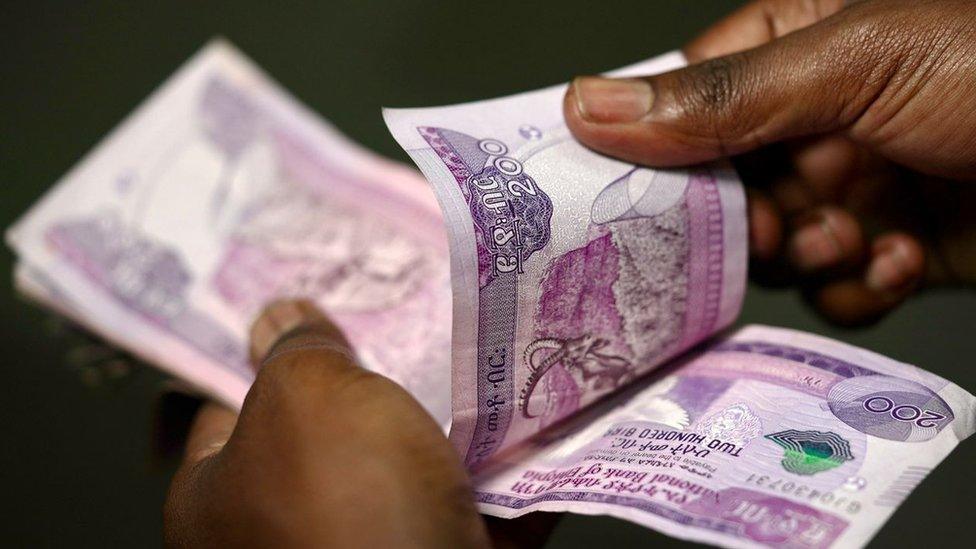Commercial Bank of Ethiopia head warns 'no escape' for clients who profited from glitch
- Published

More than 38 million people hold accounts at Commercial Bank Ethiopia
The head of Ethiopia's biggest commercial bank has told the BBC that customers who withdrew more money than was in their accounts because of a glitch cannot "escape" the law.
Commercial Bank of Ethiopia (CBE) customers rushed to take out money, or transfer it to other accounts.
It took several hours for the state-owned bank to freeze transactions.
Those who do not return money that is not theirs will be prosecuted, warned CBE president Abe Sano.
In an interview with the BBC's Newsday programme on Wednesday, he said the bank would take legal action against those who do not give back the funds by the end of the week.
"There is no way that they can escape because they are digital [transactions] and they are our customers. We know them. They are traceable and they are legally accountable for what they did," he said.
A CBE employee told the BBC it was harder to find money transferred to other banks than to trace sums moved to another CBE account.
Mr Abe said the bank was already in the process of reporting customers to the police.
He disputed reports that customers had withdrawn $40m (£31m) that was not theirs, saying the amount taken was far smaller but will be accurately determined after an audit is completed later this week.
Mr Abe said the audit was being done because some of the 10,000 customers who retrieved money during the glitch conducted legitimate transactions.
On Monday, he told a press conference that a total of 490,000 transactions had been made before the problems were noticed.
Mr Abe noted that the majority of those who had withdrawn excess money were students.
News of the glitch spread across universities - largely via messaging apps and phone calls - and long lines were seen at campus ATMs on Saturday morning,
Mr Abe previously said anyone returning money would not be charged with a criminal offence.
On Wednesday he told the BBC that some of the excess money has already been handed in.
One student from Addis Ababa Science and Technology University said people he knew were keeping the cash.
"There is a notice posted in our cafeteria warning students to return the money to avoid legal consequences but I haven't seen anyone doing so. Instead, I have seen posts on TikTok from students vowing and urging others not to return the money at all," he told the BBC.
Another student, who attends Jimma University Institute of Technology, said he "did not believe it was true" when his friends told him at around 01:00 local time (22:00 GMT) on Saturday that it was possible to withdraw large amounts from ATMs, or transfer the money using the bank's app.
More than 38 million people hold accounts at CBE, which was established 82 years ago.
On Monday, Mr Abe told a press conference that customers who had not withdrawn extra money should not be worried as their personal accounts were intact.